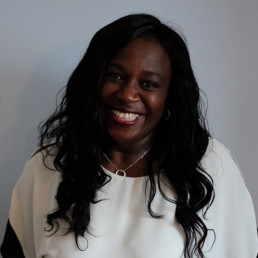
Written by Audrey Pantelis
Audrey Pantelis is an associate coach, consultant and trainer. She is a former Headteacher of a Special Educational Needs and Disabilities school and a current Diversity, Equity and Inclusion consultant and leadership coach.
We are, without a doubt, going through some tumultuous changes right now.
It’s a challenge not to be impacted by the troubles that surround us, and I do find it interesting that there is so much backlash regarding the lack of commenting on the Israeli-Hamas conflict by diversity, equity, and inclusion leads.
Do we HAVE to speak on everything?
The conflict is especially complex, and I find it interesting that it has a long historical narrative. Naturally, what is happening right now is horrific and deserves our voices to decry, denounce and condemn all those who are causing the horrendous losses of life. That is not in dispute. However, these same voices have been silent during the past ten/twenty years – or did I miss something?
This idea of difference and the subsequent displacement is something that I can resonate with – and while the conflict is not just about race and religion – there is a similarity with the concept of superiority and inferiority that is echoed when considering the definition of racism. As I have said, this is not about racism.
I don’t know how many of you have watched ‘This Is Us’ (2016-2022). It is an American TV series that follows the lives and families of two parents and their three children born on the same day as their father’s birthday. It tells of the trials and tribulations of triplets – Kevin and Kate are the biological children – of parents Jack and Rebecca – and Randall is adopted by Jack and Rebecca following the death of the third biological triplet. Randall is Afro-American and was ‘left’ at the fire station – a fireman takes Randall to the hospital and Jack speaks to the fireman following the death of the third triplet and adopts Randall. During Season 5, the episode entitled ‘Brotherly Love’ shows characters Randall and Kevin having a deep and healing conversation that addresses their upbringing and the way that they perceive one another. The discussion confronted issues around race and their family dynamic, specifically Randall’s experience of being a black child adopted by a white family and the microaggressions he faced.
It was a fascinating watch – most notably because Kevin admits that he has been actively racist in his sibling rivalry – he connects Randall’s blackness to the way he was treated within the family and then tries to take him down a peg or two because of it. I was moved by it because of the admission by Kevin and how it resonated with my own lived experiences. Randall was always made to feel that he should be ‘grateful’ for being found and taken in by a white family. The parallels between my understanding and Randall’s understanding of whiteness aren’t that different: wanting to be part of the majority when you are the minority; attempting to ‘blend in’ using language, accent, and behaviours; ensuring that you are no ‘different’ than anyone else through an understanding that merit gets you where you aspire to be. Emotionally detached and focusing on what can be ‘seen’ rather than ‘felt’. However, the idea of ‘whiteness’s superior identity to blackness’s inferior one’ is not enough for Kevin’s character and his need to try and ‘take him down a peg or two’ appears to be predicated on fear. Fear that Randall just might be better than Kevin. Randall plays into this – he is a high achiever, and he aspires and achieves success. Would he have done this if he had been raised in his own biological family? This we do not know, but we do know that Randall is living his life as best as he can – but he still feels ‘othered’ and not ‘enough’ despite his achievements.
Back to the title.
The history books tell us how one-sided life has been for those who are considered ‘other’, and it feels as if we are now at that reckoning.
By continuing as we were doesn’t cut it in the world – different times.
When George Floyd was murdered in 2020, the world watched, horrified and stunned at seeing what had been happening in plain sight. Maybe it’s a modern characteristic that we now seem to have ringside seats to horrific and heinous crimes, but with this opportunity, we need to be change-makers – not from our keyboards and phones but from our platforms, our places of work, wherever we have influence. Consistently chipping away at the rock will disintegrate the mountain.
But it’s difficult.
Why?
Because we cannot control everyone’s attitudes or actions and approaches to everything. However, polarisation appears to be king – you are either FOR something or AGAINST something, and nuance is not brought into the narrative because it doesn’t fit the ‘for or against’ stance. Equally – having a strong conviction about right and wrong is not to be condemned either – but we do need to listen to and be able to understand viewpoints that differ from our own, even if we don’t agree with them.
The hierarchical, colonial, and restrictive structures of the past no longer serve us – the old rules are now proving to be obsolete and hanging on to them scares the heebie-jeebies out of most of us – change can be considered to be fearful. However, what I believe is more fearful is the desire NOT to change, adapt, or try to do things differently.
We can aim to do what we can, with intention and with integrity; and with the idea that the next generation brings their energy and innovation to understanding old and entrenched viewpoints. We need new eyes on old situations. As educators, we are responsible for ensuring that nuance is part of how we think about things and how we can apply it.

